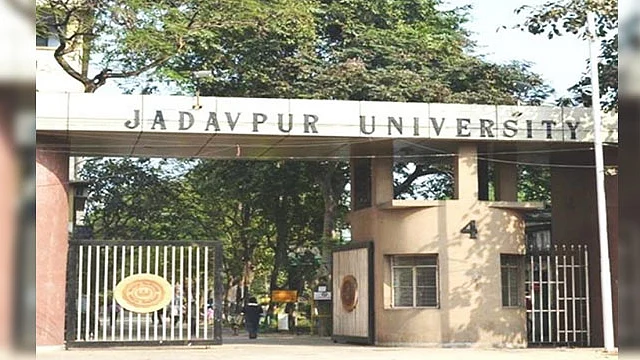Jadavpur University student's death brings homophobia to the fore
On the night of his death, the student was reportedly found on the hostel's second-floor balcony in a disorientated state, telling his hostel mates he was 'not gay'

Investigating officials of Kolkata Police have reportedly found definite clues that a 17-year-old first-year undergraduate student of Kolkata's Jadavpur University (JU), who mysteriously fell to his death from a hostel balcony on the night of 9 August, was subjected to nearly two hours of intense physical and psychological ragging before his death.
The student, whose name was earlier made public but has now been redacted at the behest of the West Bengal Child Rights Commission owing to the fact that he was a minor, was also apparently being targeted for his so-called effeminate mannerisms, and thereby hangs a tale.
Media reports have emerged quoting unnamed senior police officials, who have cited eyewitness accounts to state that on the night of his death, the student was found roaming the hostel's second-floor balcony in his underwear in a disorientated state, constantly telling his hostel mates that he was "not gay".
His family have also raised claims that he was being sexually harassed, which has raised the possibility of invoking the Protection of Children from Sexual Offences Act (POCSO) in the matter.
Sonali Roy, a prominent Kolkata-based queer rights activist and counsellor, says facing questions about one's sexual orientation can at times be an extremely upsetting factor for an individual.
“It is unfortunate that a student of the iconic Jadavpur University had to face such a thing if it is true,” said Roy, herself an alumnus of the university's comparative literature department.
Indian society is, by and large, no stranger to homophobia. Consensual intercourse between adults of the same sex was only decriminalised in the country in 2018, following a landmark decision by the Supreme Court in the Navtej Johar v. Union of India case.
"Homosexuality is not perceived very well in large parts of India," says Kanav Sahgal, a writer on LGBTQ issues who works for the think tank Vidhi Center for Legal Policy. "Despite the Navtej ruling in 2018... and even though streaming platforms have been depicting LGBT characters in positive ways, there is still a lack of awareness about homosexuality."
Same-sex couples mainly find acceptance in larger cities, where LGBTQ activists and groups have been active for decades. Tellingly, both the deceased student and most of his alleged tormentors come from small district towns of West Bengal.
Smaller towns and villages rarely discuss queerness and related issues. "It's difficult for family members to accept their own children when they come out as queer," explains Sahgal. In fact, the pressure to be heterosexual has been so high that parents have been known to send children to therapy to "correct" their sexual orientation.
Significantly, a World Bank survey in 2014 on the economic cost of homophobia used India as a case study. And found that socially exclusive factors such as violence, job loss, harassment in educational institutions and family rejection led to lower education, lower productivity, lower earnings, and poorer health.
Given this social milieu, the allegations of homophobia in the student's tragic death do not seem entirely unfounded.
Kolkata Police sources say that according to several witnesses, including some hostel inmates, the victim was asked to repeatedly face an “introduction session” by seniors, some of them former students of the university who apparently never left. Police sources also say that these sessions caused immense mental trauma for the victim, who probably faced questions which upset him thoroughly.
Of the 13 former and current students arrested in connection with two cases pertaining to the incident so far is Sourav Chowdhury, a former MSc. student of mathematics. According to the police, not only did Chowdhury mastermind the ragging, but also had a final say in accommodation arrangements at the main boys' hostel, from the balcony of which the fatal fall occurred. The deceased student's father has also told media that it was Chowdhury who arranged accommodation for his son. Chowdhury, of course, claims his innocence.
Besides the routine police enquiry, the JU authorities have also decided to conduct their own investigation into the matter. A committee comprising faculty from various departments along with representatives from different students' councils has been constituted for the purpose, headed by dean of sciences and mathematics professor Subinoy Chakraborty, which was to complete the probe within 15 days and submit a report to university authorities.
In a startling turn of events, however, Chakraborty has today resigned from the university via an email to pro vice-chancellor Amitava Dutta, citing personal reasons.
Whether this will hamper the probe committee's working remains to be seen, but the larger issue of whether the subject of their investigation fell victim to homophobia needs urgent resolution.
With inputs from DW, IANS
Follow us on: Facebook, Twitter, Google News, Instagram
Join our official telegram channel (@nationalherald) and stay updated with the latest headlines
Published: 12 Aug 2023, 1:48 PM